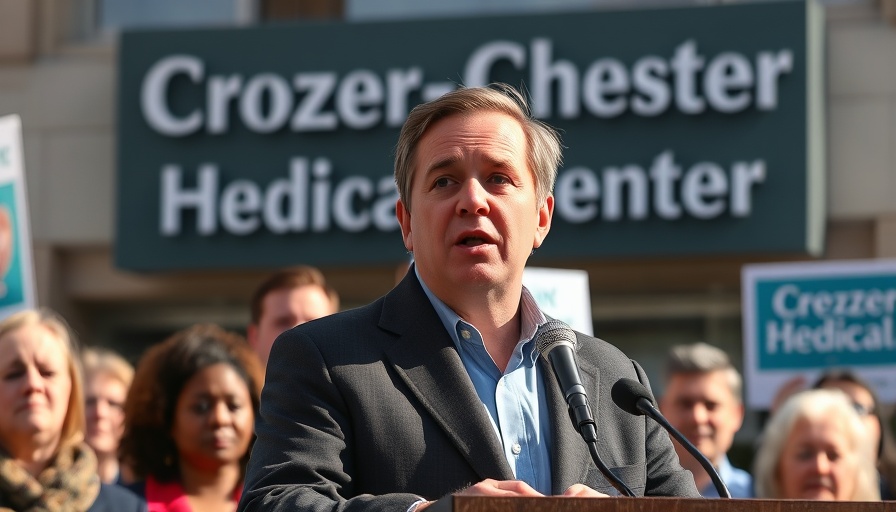
Urgent Call for Healthcare Reform in Pennsylvania
In response to two devastating hospital closures in Pennsylvania, Governor Josh Shapiro is championing critical reforms aimed at regulating the influence of private equity in healthcare. The abrupt shutdown of Crozer-Chester Medical Center, among others owned by Prospect Medical Holdings, has ignited a fierce debate about the ramifications of for-profit healthcare ownership. Shapiro's rhetoric emphasizes the urgency of the situation, stating, "Private equity has no place in our health care system." Overwhelmed by the pressure from these closures, Shapiro is advocating for Senate Bill 322 and House Bill 1460, which propose stronger regulatory oversight on healthcare transactions.
The Consequences of Private Equity in Healthcare
The closure of Crozer-Chester Medical Center has served as a potent symbol of the detrimental effects of profit-driven healthcare. With Pennsylvania witnessing 26 hospital closures in just five years, Shapiro argues that the allure of profit often eclipses patient care. This trend does not just endanger vital services; it also leads to job losses among healthcare workers and disrupts the communities that rely on these facilities. The governor’s assertion is clear: corporate interests must not dictate the health and well-being of citizens.
Legislative Efforts and Challenges
Shapiro’s proposal includes measures to empower the state attorney general to thoroughly scrutinize healthcare mergers, demand increased financial disclosures, and ban profit-driven sale-leaseback arrangements common among private equity owners. Despite his determination, previous attempts to pass similar legislation have faced significant roadblocks—most notably from Republican lawmakers who have been hesitant to advance these reforms in the Senate. This ongoing struggle raises questions about the political will needed to address the looming crisis.
Future Implications of Healthcare Reforms
The outcome of this reform effort could redefine the landscape of healthcare in Pennsylvania. If successful, the proposed bills could pave the way for more transparency and accountability in healthcare ownership, ultimately preserving the integrity of patient care. As Shapiro succinctly stated, "I’m done letting private equity treat Pennsylvania hospitals like a piggy bank they can empty out and smash on the floor." The stakes are high, and the future of healthcare for many communities hangs in the balance.
Public Response and the Call for Action
Public sentiment is crucial in this battle against private equity’s drain on healthcare resources. Many citizens have expressed their discontent through social media and community meetings, emphasizing the need for accountability and reform. Shapiro’s efforts are not just reform initiatives; they are a call to action for Pennsylvanians to recognize the vital role that accessible healthcare plays in their lives. Advocacy for community health and wellness is essential in urging lawmakers to act.
Conclusion: Taking Charge of Healthcare Futures
As the discussion around healthcare reform intensifies, it is vital for citizens to engage with their representatives and advocate for policies that prioritize patient care over profit margins. By understanding how private equity impacts their health systems, individuals can better push for reforms that safeguard their healthcare futures. The upcoming legislative session will be an opportunity for lawmakers to act decisively and protect what truly matters: the health and wellness of Pennsylvania communities.
 Add Row
Add Row  Add
Add 




 Add Row
Add Row  Add
Add 


Write A Comment